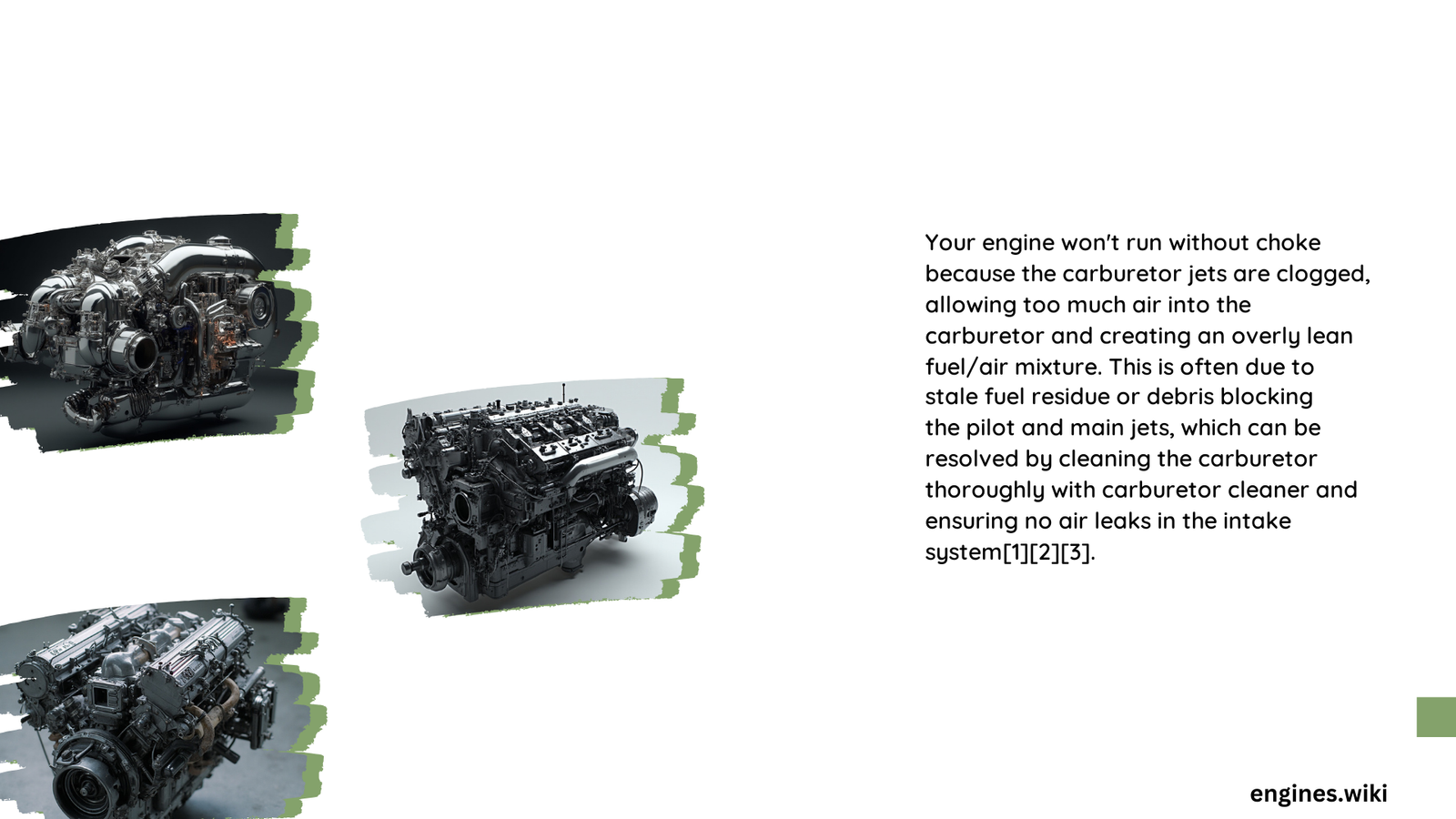When an engine struggles to operate without the choke engaged, it signals a critical imbalance in the fuel-air mixture that demands immediate attention. This complex issue stems from multiple potential mechanical and chemical factors that disrupt the engine’s delicate performance equilibrium, ranging from carburetor blockages to air intake system complications that prevent proper fuel delivery and combustion.
What Causes Engine to Require Choke for Operation?
Why Does Fuel-Air Mixture Become Imbalanced?
The fundamental reason an engine won’t run without choke relates to an improper fuel-air mixture. When the mixture is too lean, the engine cannot sustain combustion without additional fuel enrichment provided by the choke mechanism.
Key Diagnostic Factors
| Diagnostic Area | Potential Issue | Symptoms |
|---|---|---|
| Carburetor | Blocked Jets | Engine stalls when choke disengaged |
| Air Intake | Excess Air Leakage | Inconsistent engine performance |
| Fuel System | Low Fuel Pressure | Difficulty maintaining idle |
What Mechanical Components Contribute to Choke Dependency?
Several critical components can cause choke dependency:
- Carburetor Jets: Pilot and main jets may become clogged
- Air Intake Boot: Potential air leakage points
- Fuel Delivery System: Potential pressure inconsistencies
- Vacuum Lines: Potential air introduction mechanisms
How to Diagnose Choke-Related Engine Problems?
Precise Diagnostic Steps
- Visual Inspection
- Check carburetor for visible debris
- Examine air intake system for cracks
-
Inspect vacuum lines for deterioration
-
Fuel Mixture Analysis
- Measure current fuel-air ratio
- Compare against manufacturer specifications
-
Identify deviation from optimal mixture
-
Performance Testing
- Monitor engine behavior with choke engaged/disengaged
- Record specific performance characteristics
- Document temperature and operational conditions
What Are Typical Repair Costs?
Repair complexity varies significantly:
- Minor Cleaning: $50-$100
- Carburetor Rebuild: $150-$500
- Complete Replacement: $300-$1000
Expert Recommendations
Professional mechanics suggest:
– Regular carburetor maintenance
– Use fresh fuel
– Store equipment properly
– Perform seasonal tune-ups
Technical Specifications for Optimal Performance
Ideal Fuel-Air Ratios:
– Normal Operation: 14.7:1
– Choke Engaged: 10:1 to 12:1
Prevention Strategies
- Clean fuel system annually
- Use fuel stabilizers
- Maintain proper storage conditions
- Follow manufacturer maintenance guidelines
Conclusion

Understanding why an engine won’t run without choke requires systematic diagnostic approach, combining mechanical knowledge with precise measurement techniques. Each engine presents unique challenges, demanding tailored troubleshooting strategies.
